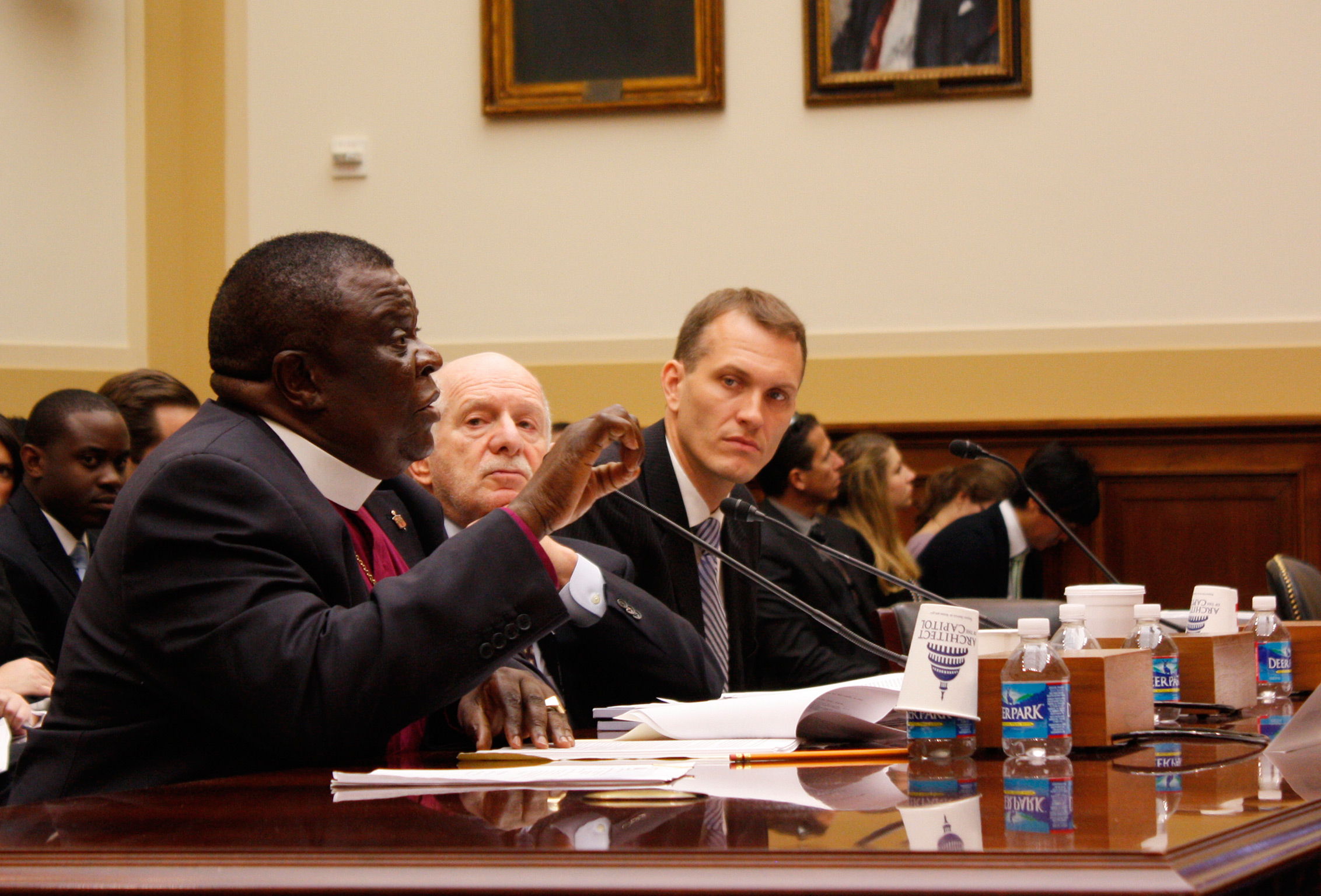
On September 19, the U.S. House Subcommittee on Africa, Global Health, and Human Rights held a hearing to discuss Rwanda’s involvement in the recent M23 rebellion that continues to fuel violence and create a security vacuum in eastern Congo. Chaired by Representative Christopher H. Smith(R-NJ), the hearing examined the international response to the current crisis and Rwanda’s documented involvement, and policy options the U.S. government can contribute to diffuse the conflict.
The hearing included three prominent panelists—Bishop Ntambo Nkulu Ntanda of the United Methodist Church of North Katanga, Congo; Mark Schneider, senior vice president of the International Crisis Group; and Jason Stearns, director of Usalama Project Rift Valley Institute. State Department Assistant Secretary for African Affairs, Johnnie Carson, and USAID Assistant Administrator for African Affairs, Earl Gast were notably absent from the hearing, both citing increased security issues at U.S. foreign missions as cause for their absence.
In the opening remarks, Rep. Smith stated that the situation in Congo was “both tragic and complex,” and called for an end to the ongoing conflict that has plagued the population of eastern Congo. Representative Karen Bass (D-CA), also in attendance, stated that the vulnerable must be protected and there is still much to do.
Bishop Ntanda opened the panel with an emotional plea to the U. S. government. “We came to seek your assistance,” said Ntanda, “America, you have the power to stop this war.”
The panelists agreed that the violence perpetrated by M23 in eastern Congo, in collusion with the government of Rwanda, must come to an end. Schneider outlined a series of steps to be taken in order to bring the conflict to an end, including an immediate ceasefire to be monitored by the United Nations Mission to Congo, or MONUSCO, and the need for accountability for war crimes committed during the conflict.
Stearns explained the need for political solutions to what is an inherently political process, and that any deal must “strike a tricky balance,” and should include the arrest of the worst offenders and the reintegration of other rebels. He emphasized that Rwanda will inevitably play a role in any peace plan, and that pressure placed on Kigali must be strong and sustained.
The panel agreed that the U.S. government could employ its considerable economic leverage to influence Rwanda, which could have a substantial effect on Kigali’s actions. According to Stearns, Rwanda’s number one commodity is its international reputation, which it is damaging significantly by supporting M23. Stearns added that Rwanda’s successes in improving its development indicators must not be separated from its involvement with M23, and that economic consequences can go a long way. By raising these issues at the World Bank level, where the U.S. has strong influence, there is potential for leverage. Schneider commented that the U.S. government, which has been a prominent ally of the Kagame regime for the past 18 years, must make it clear to Rwanda that ending its support of M23 is a necessary condition if the U.S. and Rwanda are to continue its positive relationship.
A major question disagreed upon by panelists was whether the neutral military force proposed by the 11 member-state regional body, the International Conference on the Great Lakes Region, or ICGLR, is a viable solution to the conflict. Stearns called the proposed force “a waste of time,” while Ntanda spoke for a coalition of Congo faith leaders in his statements supporting the neutral force.
Stearns’ main criticism of the force is threefold: staffing, funding, and mandate. The mandate, said Stearns, would have to be an offensive against M23 and FDLR in difficult terrain. The force would cost hundreds of millions of dollars per year, and the troops would have to come from neutral African nations. At this time, Tanzania and Angola are the only countries that have signaled interest in providing troops.
One of the biggest obstacles highlighted by the panel in resolving the crisis in is the failure of the U.S. government to present a united front on the issue. Despite the U.S. government’s economic influence in Rwanda, there is little political will to back diplomatic efforts and Congo is low on the list of priorities. According to Stearns, the U.S. government must take a serious look at its political and economic involvement in Rwanda. It is working against itself in many respects, offering development assistance to Rwanda and simultaneously supporting MONUSCO. As Ntanda pointed out, the Congolese government has done all it can do. It is now up to the international community to broker a political deal that will bring peace to Congo and the entire Great Lakes region.
View a full video of the hearing.
Photo: Panelists from left to right: Bishop Ntambo Nkulu, Mark Schneider, Jason Stearns (Allison Punch/Enough Project)

